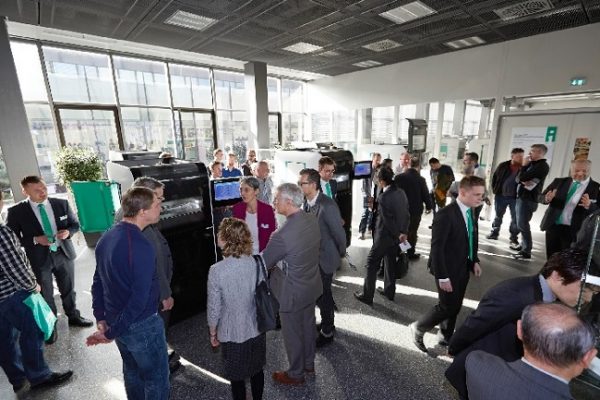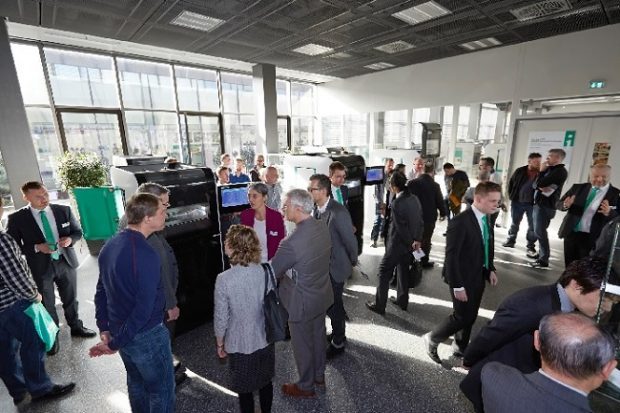 The amount of interesting points, reports about new technologies and interviews with visitors presented at the “ARBURG“‘s 27 acre production facilities were so huge that, even its classification needs long time. Now PIMI’s editorial team is working on all materials received from the Chef and will publish it gradually.
The amount of interesting points, reports about new technologies and interviews with visitors presented at the “ARBURG“‘s 27 acre production facilities were so huge that, even its classification needs long time. Now PIMI’s editorial team is working on all materials received from the Chef and will publish it gradually.
One of the most interesting points of the Technology Days was the “APF” Process. Via this process production of industrial additives using original materials, including PP, PMMA and SEBS is now possible. The other appreciable points of this process are: 1) Open system which provides wide range of materials available for processing with Freeformer, 2) Freeformer: seven exhibits demonstrate current state of “Arburg” Plastic Freeforming (APF)
Visitors to the Technology Days 2018 experienced seven Freeformers in a single swoop – more than at any trade fair worldwide. The exhibits used Arburg Plastic Freeforming (APF) to produce functional components from qualified materials. As an innovation, the processing of the materials PMMA and SEBS (medically approved) were presented. Moreover closure caps made from standard PP were on exposure on the show, as well as parts made from PC, PA10, ABS and from two other components.
“At the Technology Days, we are demonstrating the wide variety of functional components that can be produced from qualified original materials in an additive manufacturing process using the Freeformer,” says Eberhard Lutz, Director Freeformer Sales. “Because we have been receiving highly positive feedback on the processing capabilities with standard PP since the premiere in autumn 2017, we have now begun using this semi-crystalline material at our Arburg Prototyping Center in order to produce sample parts for potential customers on the Freeformer.”
Expansion of the material database
A total of seven Freeformers and numerous functional components were used at the Technology Days 2018 to demonstrate that Arburg Plastic Freeforming (APF) is not only suitable for prototyping but also for the industrial additive manufacturing of functional components in particular.
The APF experts are continuously expanding the existing material database with new materials. In addition to amorphous standard granulates such as ABS, PA and PC, the material spectrum includes, for example, elastic TPU and semi-crystalline PP. The processing of PMMA and a medically approved SEBS with a hardness of 28 Shore A (Cawiton PR13576) was presented for the first time at the Technology Days.
Other original materials that have been successfully processed on the Freeformer include ABS Terluran GP-35, PA10 XE 4010, PC Lexan 940 (approved for aerospace applications), PC-ABS Bayblend FR3021 (flame-proof), PLA Purasorb PL18 (approved for medical technology), PP Braskem CP 393 and TPU Elastollan C78A.
Open system for industrial additive manufacturing
One of the major advantages of the APF process is that Freeformer customers can use the open system to qualify their own original materials and optimise the freely programmable process parameters specifically for their respective application. All of this process data can be stored and analysed and designs can be optimised in a short time to produce prototypes and functional components quickly and economically using the Freeformer. The better the process is adjusted, the better the quality of the component. Mechanical stress tests show that adapted process control can achieve component densities of up to 95 percent and tensile strengths of up to 97 percent compared to injection moulding.
Specialist presentation by the Technical University in Munich
An external speaker from the Technical University of Munich, Andreas Schröffler gave a specialist presentation in German and English each day during the Technology Days 2018. He focused light on how important component parameters can be specifically influenced by exploring of new build strategies and how this affects the build time, dimensional accuracy and surface quality of additively manufactured functional components.












